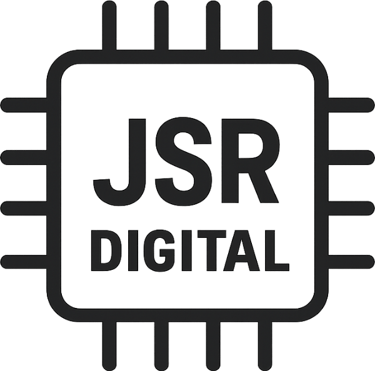The year 2025 has brought a new era of digital content creation. Artificial Intelligence (AI) tools have matured at lightning speed, producing articles, videos, designs, and even music that often rival — or sometimes surpass — human efforts. At the same time, human creativity has never been more valuable, especially in an age where authenticity and emotional depth drive consumer trust.
This raises a crucial question for businesses, marketers, and creators: What works better in 2025 — AI-generated content or human creativity? Let’s explore the balance, the battles, and the breakthroughs shaping this debate.
The Rise of AI in Content Creation
Automation at Scale
AI tools like GPT-5, MidJourney, and Runway have become indispensable for companies seeking to scale content quickly. Whether it’s writing thousands of product descriptions, generating ad visuals, or producing voiceovers, AI provides speed, cost savings, and consistency.
Smarter & More Personalized
Unlike earlier AI models that often produced generic text, today’s AI engines can adapt tone, style, and messaging to match brand identity. In 2025, personalization is not just a trend — it’s a necessity. Businesses use AI to tailor emails, blogs, and even video ads to hyper-targeted audiences.
Multimedia Domination
AI now goes beyond text. Tools generate short-form TikToks, podcasts, and even AI avatars that can act as virtual brand ambassadors. For startups with limited budgets, AI is the ultimate productivity partner.
The Power of Human Creativity in 2025
Emotional Connection Still Matters
Humans excel where machines still fall short: empathy, cultural nuance, and emotional storytelling. A viral campaign often succeeds not because of perfect grammar or flashy visuals, but because it resonates on a deeper level.
For example, a founder’s personal story, told in their authentic voice, often outshines AI-generated scripts. In 2025, consumers are increasingly skeptical of polished, robotic marketing — they crave raw, human honesty.
Innovation Over Imitation
AI is excellent at remixing existing patterns, but true innovation still emerges from human minds. A copywriter might invent a slogan that breaks linguistic rules yet becomes iconic. A designer might create art inspired by cultural shifts no dataset has captured yet.
Trust & Authenticity
With AI content flooding the internet, audiences value verified human touch. LinkedIn thought leaders, niche bloggers, and podcasters who share lived experiences are gaining more credibility than faceless AI-driven channels.
AI vs Human: Where Each Works Best
Areas Where AI Excels
Repetitive Writing: product listings, FAQs, standard blog outlines.
Data-Heavy Content: financial reports, SEO analysis, and trend summaries.
Multilingual Reach: instant translations for global businesses.
Rapid Ideation: brainstorming headlines, slogans, or campaign concepts.
Areas Where Humans Lead
Emotional Storytelling: memoirs, brand narratives, inspiring speeches.
Creative Strategy: campaign direction, innovation, and original ideas.
Ethical Judgment: avoiding bias, misinformation, or insensitive content.
Community Engagement: live conversations, interviews, and debates.
The Hybrid Model: AI + Human Collaboration
The truth in 2025 is not about AI vs. humans, but AI + humans. The most successful businesses are those who use AI to handle efficiency and scale, while humans inject creativity and authenticity.
Examples of Hybrid Success
Marketing Teams: AI drafts blog posts → humans refine with personal stories.
Video Creation: AI edits raw footage → humans add creative storytelling layers.
Customer Service: AI chatbots handle FAQs → humans solve complex or emotional cases.
This collaboration saves time, reduces costs, and delivers higher-quality results than either could alone.
Challenges of AI-Generated Content in 2025
Even with advancements, AI comes with challenges:
Oversaturation: Too much AI-generated content risks making the internet feel repetitive.
Misinformation: Without proper oversight, AI can spread inaccurate or biased information.
Loss of Original Voice: Brands relying solely on AI risk sounding identical to competitors.
Ethical Concerns: Copyright, plagiarism, and deepfake issues are still under debate.
What Consumers Really Want in 2025
Recent surveys show that audiences prefer a balance:
Speed & Accessibility of AI content.
Authenticity & Depth of human-created stories.
A TikTok trend might start with an AI-generated soundtrack, but it becomes viral when a human adds a personal, funny twist. Similarly, an AI-written article might bring facts, but a human editor adds the emotional spark that keeps readers hooked.
The Future: Human Creativity Enhanced by AI
By 2025, the conversation has shifted from “AI replacing humans” to “AI empowering humans.” Writers, designers, and entrepreneurs who embrace AI as a tool rather than a threat are thriving.
Instead of spending hours drafting repetitive text, they use AI to handle the groundwork, freeing up time for strategic thinking, storytelling, and community building.
In essence, AI is the engine, but human creativity is the driver.
Conclusion: What Works in 2025?
So, AI-generated content vs human creativity — what truly works in 2025?
The answer: Both, working together.
Businesses that rely only on AI risk losing authenticity.
Businesses that ignore AI risk falling behind competitors.
The winning formula is hybrid — AI for speed, humans for soul.
As we move further into the future, success will not be measured by whether content is AI-made or human-made. Instead, it will be judged by its ability to connect, inspire, and create real value.
In 2025, the best content is not machine or human — it’s human imagination, supercharged by AI intelligence.


